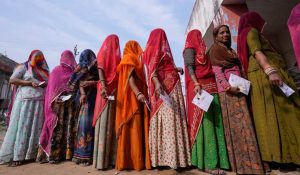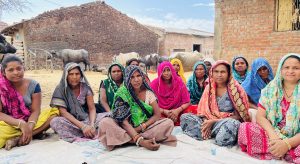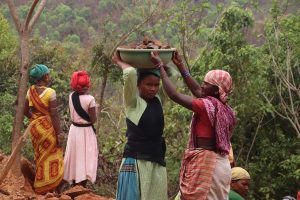How Young Women In India Are Carving Space For Themselves In Politics
They don’t helicopter into villages and vamoose. We speak to young women who are political newcomers on how they ensure constant interaction with people
- Shreya Raman
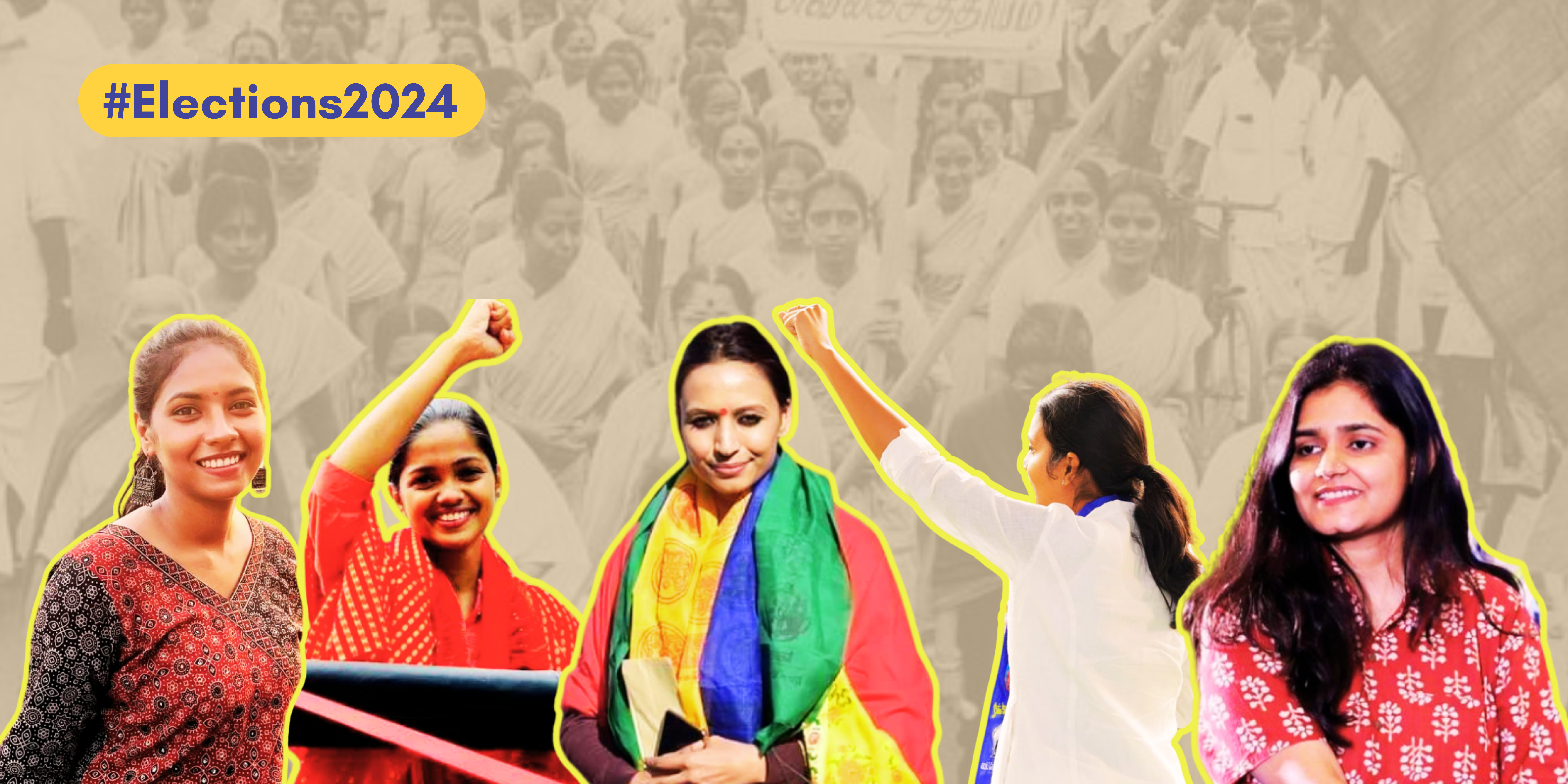
On a May evening last year, hundreds of people gathered in the narrow lane of Pila Bungalow in Mumbai’s Dharavi area. Pandals were set up on both sides of the lane and the whole street was dressed up in red flags. There were banners with photographs of Karl Marx.
The gathering consisted mostly of street vendors and domestic workers. With a broad smile on her face, Samya Korade, 23, welcomed everyone and to those who knew nothing of it, spoke of Marx’s work and its impact on labour rights.
Lunch – chicken biryani, vegetarian dishes and sheera – was accompanied by political discussions. Many clicked selfies with Samya while others served her food.
Samya’s get-together was a political bhandara to celebrate Marx’s birth anniversary and create awareness about his theories and politics. A bhandara like the Sikh langar is a food-centred community event to celebrate a religious occasion. Many, including leftist liberals, made fun of the idea through memes and other media posts, pointing out that a bhandara featuring Marx, an atheist, was ironic.
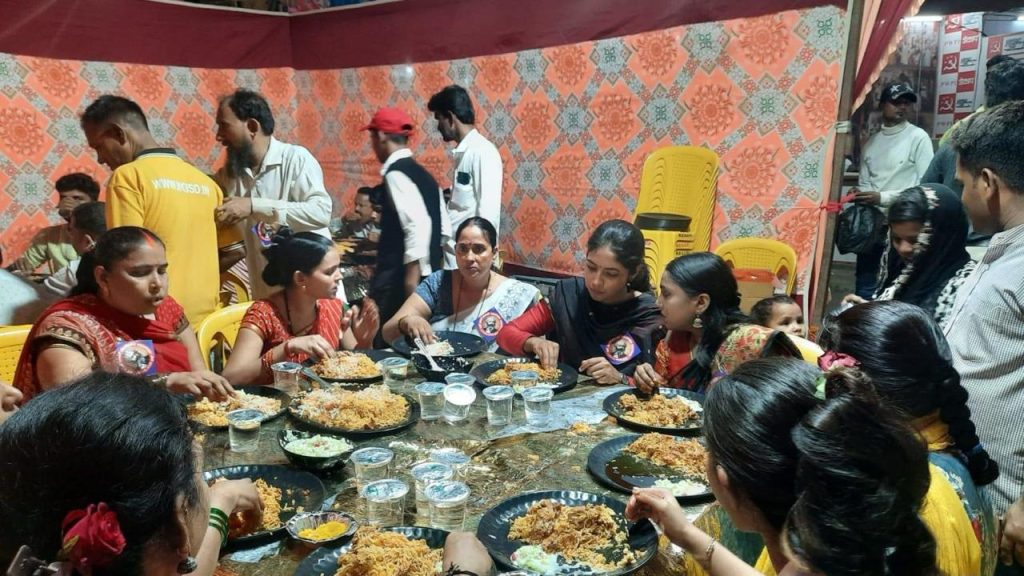
“I think food connects people,” said Samya, a young political leader from the Shetkari Kamgar Paksh (Peasants and Workers Party). “People in my constituency are working class, they may not understand what dialectical materialism is. But at the bhandara, they all saw Marx’s photo and I could talk with them about his revolutionary legacy using simple language.”
Like Samya, young women across India are trying to break boundaries using innovative methods and carve a space for themselves in politics, a field largely dominated by older men from political legacies.
Since the 1st Lok Sabha, the number of young members has gone down and the average age of the 17th Lok Sabha members is 55. The limited presence of women in higher levels of politics is in contrast with the fact that almost half of the representatives in local governance are women.
Patriarchal norms, lack of financial capital, discrimination and lack of support from parties have proven to be significant barriers for women to enter electoral politics.
We interviewed five young women, across political ideologies at different stages of their political careers, from Kerala to Rajasthan and Sikkim to Maharashtra to understand how they are using new mobilisation tactics, including social media and campaigns to overcome these barriers. Most of them do not come from political families with the advantages of legacy and powerful social and political networks. They are researchers, aspiring civil servants, doctors and activists and are in politics only because they believe they can influence a larger and more sustained change than any other field of work.
This comes with its own set of challenges. The kind of sexism women have to face in politics today is different from the unabashed bias that Indira Gandhi faced as a novice when she was described by the veterans as ‘goongi gudiya (dumb doll)’ or Mayawati who was described as ‘parkati mahila (short-haired woman)’ by Sharad yadav. Women’s representation is at the heart of public discourse today, so the sexism is different and more twisted; it is on social media and touches on clothes, appearance and political campaigns.
India ranked 127th out of 145 countries for gender parity in the Global Gender Gap Index 2023. The country ranked better in terms of political participation (59), mostly because of a sub-indicator that looked at the ratio of years in the last 50 years when there was a female head of state versus a male head of state. India ranked 117th for the proportion of women in Parliament and 132nd for women in ministerial positions.
Politics as Purpose
Sneha Padayan, 23, has been dreaming for a long time of a career in the civil services. In her first year of postgraduate studies in Thiruvananthapuram, she was approached by the Communist Party of India (Marxist) to contest elections. “I thought it was a joke at first,” said Sneha. But she knew that she could make a bigger difference if she had political power to deal with social injustices.
“I decided to contest so I can make a difference, at least at the Block level,” she said. So, at 22, she contested the local body elections in Thrithala in Kerala’s Palakkad district and was elected as a Block panchayat member.
Bina Bassnett (33) too was charmed by the prospect of making a bigger difference at the policy level. As a trained medical doctor, she had worked at Delhi’s Lady Hardinge Medical college and with the National AIDS Control Office (NACO). She had been working on the problems of substance abuse and been bothered about the high prevalence among the youth in her home state of Sikkim. “ I wanted to affect a larger change at the policy and reform level, beyond individual patient care”, she told Behanbox.
In May 2018, Bina co-founded the Hamro Sikkim Party along with other young professionals like the footballer Bhaichung Bhutia. They had dreamt up a radical new way of doing politics and challenging the status quo.
Usha Dasari, 27, a graduate from IIT Kharagpur knew she wanted to be in politics but thought she should wait till she was at least 45 so she would have better experience of human nature and a clearer ideology. But, at the behest of RS Praveen Kumar, a Dalit former civil servant who had joined the Bahujan Samaj Party (BSP) in August 2021, she decided to take the plunge sooner.
Usha left Delhi where she had been preparing for the UPSC exam, travelled back to her hometown Peddapalli in Telangana and started visiting villages in the area. She saw the impact of the Covid-19 pandemic on school children and started working with educated women in her village to set up tuition classes for children who were left behind in 60 villages. But soon, the government ordered a ban on such tuition classes. Her appeals to the district collector bore no fruit.
“Then I realised that it has taken a political turn. Everyone knew I was a supporter of Praveen Kumar so they thought this was a way for him to gain prominence in Peddapalli,” she said.
Within the BSP, Usha had been tasked to look for MLA candidates for the upcoming state assembly elections. She met many potential candidates from Dalit and Bahujan communities but they were not keen to contest on a BSP platform as it was not very popular in Telangana and the party was not ready to financially support their candidature.
“Why can’t I become a leader?” Usha asked herself and soon took the plunge. In October 2023, Usha was declared as one of the 107 candidates from BSP who would contest in the state assembly elections. On March 16, 2024, she followed Kumar in quitting the party and joining Bharat Rashtra Samithi (BRS).
Young women are keen to enter politics not just as a career option but with idealism and the will to make a change. This is also borne by data. In a 2019 survey conducted by Lokniti-CSDS (Centre for the Study of Developing Societies) with 6,000 women from across 11 states, 43% said they are interested in politics. A higher proportion (45%) of young women (18-25 years old) showed a moderate to high interest in politics compared to 38% of women older than 55. If given an opportunity, 28% women said they would pursue politics as a career and women who showed higher interest in politics were more likely to do so.
“I have always liked politics but my involvement was limited to campaigning or being part of unions. I had never thought about it as a profession, I was not fixated on seats,” Sneha told Behanbox.
In the 2019 study on women voters, 16% said that politics has a negative connotation, that it is meant only for the rich and involves false promises and corruption. But around 37% considered it to be good. Those who have a negative perception of politics are less likely to be interested in politics.
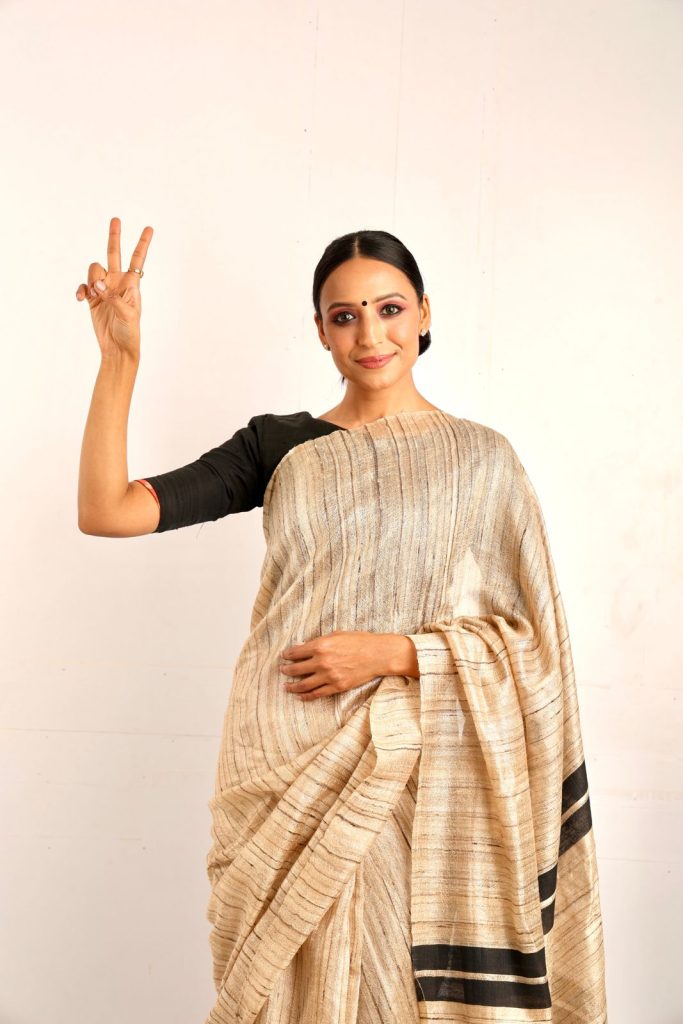
Barrier Begins At Home
Despite the growing enthusiasm, It is not always easy for women to choose politics as a vocation. Converting this interest [of women in politics] into a significant force in politics is missing, wrote independent journalist Neel Madhav in his chapter in the 2022 book, Women Voters In Indian Elections.
These barriers begin at home. “Most women, irrespective of their ideology, or party affiliation, need consent from their elderly male relatives to join political activism,” said Proma Raychaudhury, an assistant professor of politics at Krea University. The younger they are, the lesser their freedom to choose politics. Only 6-7% of the 18-29 year old women in the CSDS survey said that they were absolutely free to participate in political activities and did not need the permission of a husband or a senior family member. This proportion increased to 8-10% for 30-49 year old women and to 15-17% for women older than 50.
Anirvan Chowdhury, postdoctoral fellow at Harvard University, found in his fieldwork instances of familial resistance to women joining politics. “I met a young BJP leader during my field work whose brother was in the RSS. Her family was not particularly supportive of her political career in the beginning because they did not want more than one person from the family to pursue politics,” he said. “So there was a certain reticence in the household that it is easier for a man to do it than a woman.”
Family support is also crucial because of the financial resources needed to pursue electoral politics, especially for young women in need of start-up capital. Usha, an OBC, had her parents’ support when she contested from Peddapalli in 2023. “They gave me all their savings and told me to use as much as needed.” Donations started to pour in after her constituents saw her tenacity. “Wherever I was invited, they would fill the petrol in the car I was using”, Usha told Behanbox. Over the next six months, Usha also carried out a door-to-door campaign to raise funds.
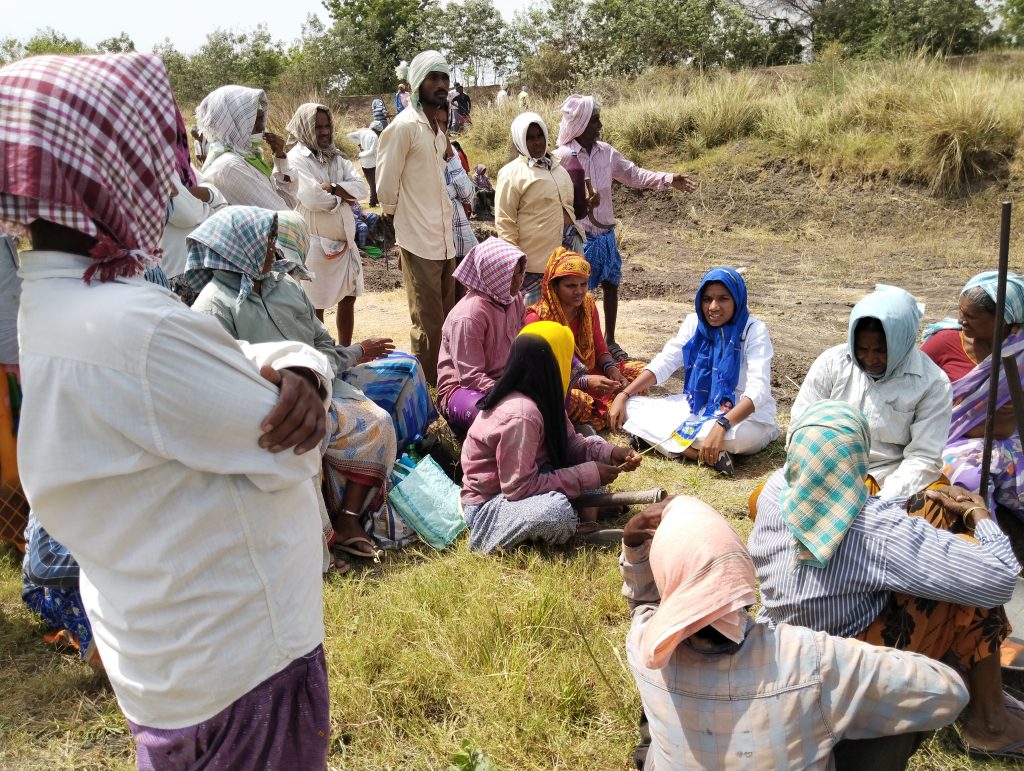
Anirvan has observed that having assets such as a car and driver also establish the stature and heft of the person as a political candidate. “If you are an itinerant party worker, it is acceptable to use someone else’s car. But if you want to create your own identity as a stepping stone towards contesting at some point, you need to have a car and a driver and money to be able to do things,” he said. “In Madhya Pradesh, a full-time activist with candidacy ambitions told me that they spend around Rs 50,000 per month for ‘doing’ politics.”
Money was all the more important for Usha, as a member of the Bahujan community, to establish herself. “If I show that I am financially weak, people will be scared to join me,” said Usha.
‘What Can This Girl Do?’
Age, or the perception of it, is often used as a means to question their capabilities and dissuade women from claiming their space within political establishments. Bina has seen this play out in her own case. In May 2018, she was elected as the president of the party she co-founded, making her the first woman president of a political party in Sikkim’s history. Soon after her election, half the men in her party quit. “Older men in the party were not ready to work under a woman and that too a young woman,” Bina told Behanbox.
“She is my daughter’s age, how can I take orders from her?” was one of the many things the older male members of the party said. “It did not matter if I had the vision or presented a superior alternative. My being a young woman always got in the way,” said Bina. Young male politicians, on the other hand, are always hailed for choosing politics as a career, even portraying it to be a sacrifice of their professional careers for public service.
Bina also believes that the resistance of older men to serve under the leadership of younger women had to do with loss of control, especially financial control. “Being a leader also means being in charge of the party’s money purse and its distribution. Men were uncomfortable asking for money from a woman leader.”
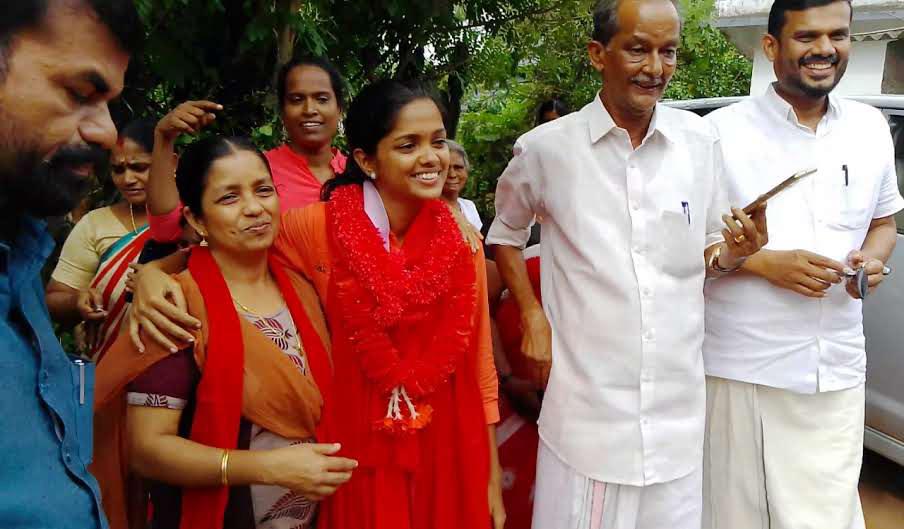
Sneha was 22 years old when she was campaigning to be elected as a block panchayat member in her hometown of Thrithala in Kerala. Her opponents often attacked her for her age during her campaign calling her a “kitten that has yet to open her eyes”. People were often cynical about her capabilities. ‘What can this small girl do?’ or ‘Does she know anything?’ were things she heard about herself. In Kheri Milak area of Rajasthan’s Jaipur district, Aishwarya Rathore, 29, won the sarpanch election with a rousing margin but still struggles with the patriarchal mindset. “Sometimes in meetings, people from the village will ask to speak to my father instead of me,” said Aishwarya.
These young women political leaders have also learnt to deal with this cynicism about their capabilities. Sneha immerses herself in knowing about the problems of her constituents as a way to enhance her capabilities.
“It’s true that I did not know anything about real-life problems earlier. I had only been a part of student politics. But I need a chance to get elected, learn and prove myself,” she says.
Clothes are another tool for sexism. All the young women we interviewed said that it was either used to ridicule or question their leadership. “I did not wear a sari all the time, wore nail polish and heels and that did not sit well with the male leaders,” said Bina. “They fished out photos from my social media handles and ran social media campaigns to malign my character.”
Aishwarya has also had to change the way she dresses in public. “When I am working, I mostly wear shirts or kurtas with jeans or pants and avoid wearing dresses and shorter clothes,” she said. “Once when I went to Dubai, I had clicked a picture of myself wearing a dress that was not even short. My father asked me not to put it as my profile picture on Whatsapp because I am a sarpanch.”
Young women are also subverting the masculine idea of a political leader which often becomes a reason for older men to dismiss them. Bina told us how men in her party found it unacceptable that she refused to abuse her opponents in political campaigns. “How could she be a political leader?” they asked. She preferred to instead use the meetings to present her vision for an alternate politics. Usha used a more genial approach to counter her opponents who attacked her. “When people attacked me, I would answer them in a pleasant tone. The crowd also used to like my answers. I was spontaneous. I used to enjoy that.”
Innovative Campaigns
Sneha’s life had changed three years ago, when she uploaded a 4-minute explainer video on Instagram. Dressed informally in a light blue sweatshirt, she explained with passion about the fallout of the policies introduced by the administrator of Lakhshadweep, Bharatiya Janata Party’s Praful Patel. The video, with almost 400,000 views and 20,000 likes, was the first one that Sneha posted that got such wide attention.
If it were not for this video and its popularity, Sneha said she would have not been approached by the CPIM or contested the election. “I was never active in the local politics as I was away in a hostel,” said Sneha who studies in Thiruvananthapuram, 300 km away. “I was a member of the local Democratic Youth Federation of India (DYFI) committee for a year. But that is about it.”
Women, in the absence of financial muscle, are using digital platforms and social media to establish themselves and mobilise followers. These platforms have opened up new avenues of political participation for women. In Telangana, 25-year-old Dalit politician Karne Shireesha gained prominence after she posted a video of her herding four buffaloes on social media. Shireesha, who is a BCom graduate, through the video shared her plight of not being able to find a job and having to do cattle rearing instead. The video went viral and Shireesha, who is commonly known as barrelakka (sister with buffaloes), became the face of unemployment among the youth. She registered as an independent candidate in the 2023 state elections.
“Social media is influencing people largely,” said Usha. “There is no better platform to connect with people.” Social media has also helped Usha get more funding. “During election time, I used to regularly update my work on Instagram and Twitter,” said Usha. “Many people, including BSP leaders, from other states saw my work and came to fund me.”
Human Outreach
People’s trust is integral to succeeding in politics, said Usha. “Why do we recognise leaders like Mahatma Jotiba Phule and Babasaheb Ambedkar? Because they are uncompromising, committed leaders.” New forms of mobilisation notwithstanding, these young women leaders know the value of on ground human connect.
During her campaigning, Usha went to each village around 7-8 times and chatted with people. “I would go to a village, invite 50-60 people. Mostly women would show up,” said Usha, “We would sit together and chat for around an hour. They would ask me questions and I would answer them and in return I would also ask them questions.” She started being recognised and respected after two years of steady ground work “because I am working on building a community”.
Aishwarya spent a year campaigning, going door-to-door, speaking to women of all ages. “I spoke to each and every woman, old and young, to understand their issues, and they resonated with me because I am a woman too,” said Aishwarya.
Sneha also tries her best to meet and listen to people in her block. “Whenever I come back home, I spend most of my time outside so that I can meet as many people as possible,” said Sneha, “People should not think that I have disappeared and that I am not doing anything.”
In addition to meeting people and fulfilling her responsibilities as a block panchayat member, Sneha also conducts events and activities that can help the people. “I try to make use of my personal contacts with NGOs and use my friends’ help to organise events,” said Sneha, “Recently I conducted a medical camp.”
Politics As A Career
However, not all the women we spoke to want to continue in electoral politics. “My sister, after four years, is done with politics at the grassroots level. It is a challenging and thankless job,” said Vranda Rathore, Aishwarya’s 22 year-old sister. “Their eyes are on me to carry the torch forward, but let’s see.”
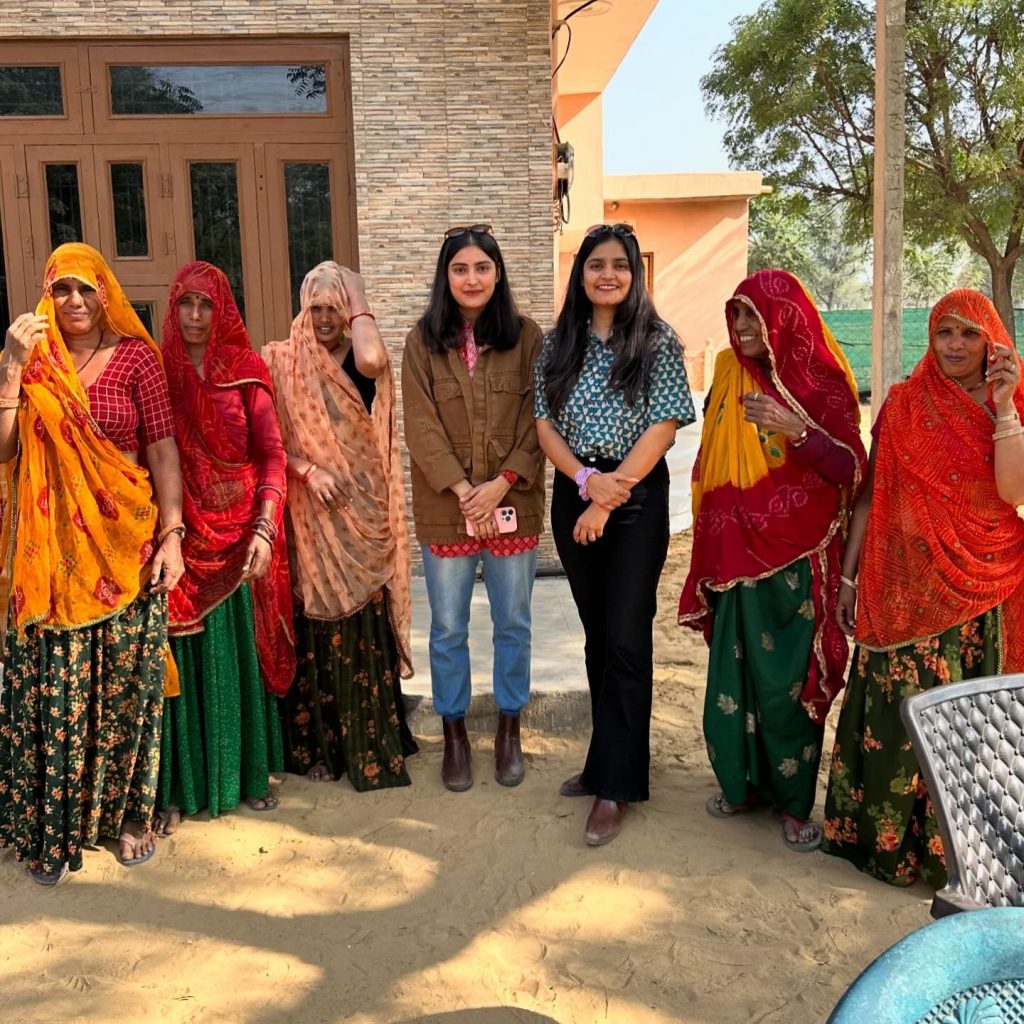
Aishwarya, who is proficient in German and has a bachelors in Computer Applications, said she wants to explore other career options, possibly in business or will go abroad. “I think the Gram Panchayat needs a new leader now, and I think my sister can be one of them,” said Aishwarya.
Since being elected, Sneha has been juggling her education and her responsibilities as a block member. In the first few years, when she was doing her postgraduate studies, it was comparatively easier. But she is now pursuing a Bachelor of Education (BEd) in a college with a heavy workload and strict schedules.
“I am always travelling,” said Sneha. “My friends tease me and say I should get a job in the railways.” Sometimes, other members of the block panchayat understand and schedule important meetings as per her convenience. “They are more concerned about my education,” said Sneha, “If I spend two days at home they chide me to go back and study.”
Despite the support, Sneha has to spend hours on the train almost every week. There have been some weeks when she has had to do two round trips between her home and college, which is a 7-8 hour journey one-way. She is not sure if she would pursue electoral politics as a career. “If there is an opportunity and if the party offers, I would consider. But no matter what I do, I will be involved in politics,” she said.
Samya, Usha and Bina continue to be as motivated as ever. Samya is hoping to contest in the upcoming elections for municipal corporators of Brihanmumbai Municipal Corporation (BMC).
Usha says she is trying to enjoy her political career. “I didn’t enter politics to stay for two years or seven years or for a short time,” said Usha, “I came into politics with an aim to fix my feet on the ground. So to stay firm, I need to enjoy the process.”
She said she is focused on learning more and developing a good personality. “Right now I am learning and I will continue to learn till I approach an age where I won’t be able to change,” said Usha, “So I want to connect with as many people as I can and learn as much as I can.”
While Bina wants to contest in the 2024 Lok Sabha elections, she said that ticket distribution depends on the party and that she will do what needs to be done even if she doesn’t get one. She wants to continue in politics because she wants to create a level playing field for future women politicians. “We need to create better role models for women aspiring to be in politics,” she said. “I believe the world needs more women politicians with feminist values.”
(Bhanupriya Rao, Priyanka Tupe and Ankita Dhar Karmakar contributed to this report)
BehanBox’s Feminist Election Newsroom has created accessible video voting guides to equip our audience to become an informed voter.
We have explainers on “How To Register Your Vote As a First Time Voter” – English, “अपना वोट रजिस्टर कैसे करे? – Hindi”
“How To Shift Your Vote If You Have Migrated”, “How To Update Your Gender and Name On Your Voter ID”, and “How To Mark Yourself As A PwD Voter”.
We have more resources coming up. Keep watching this space for more. To sign up for BehanBox’s Feminist Election Newsroom, click here.
We believe everyone deserves equal access to accurate news. Support from our readers enables us to keep our journalism open and free for everyone, all over the world.
